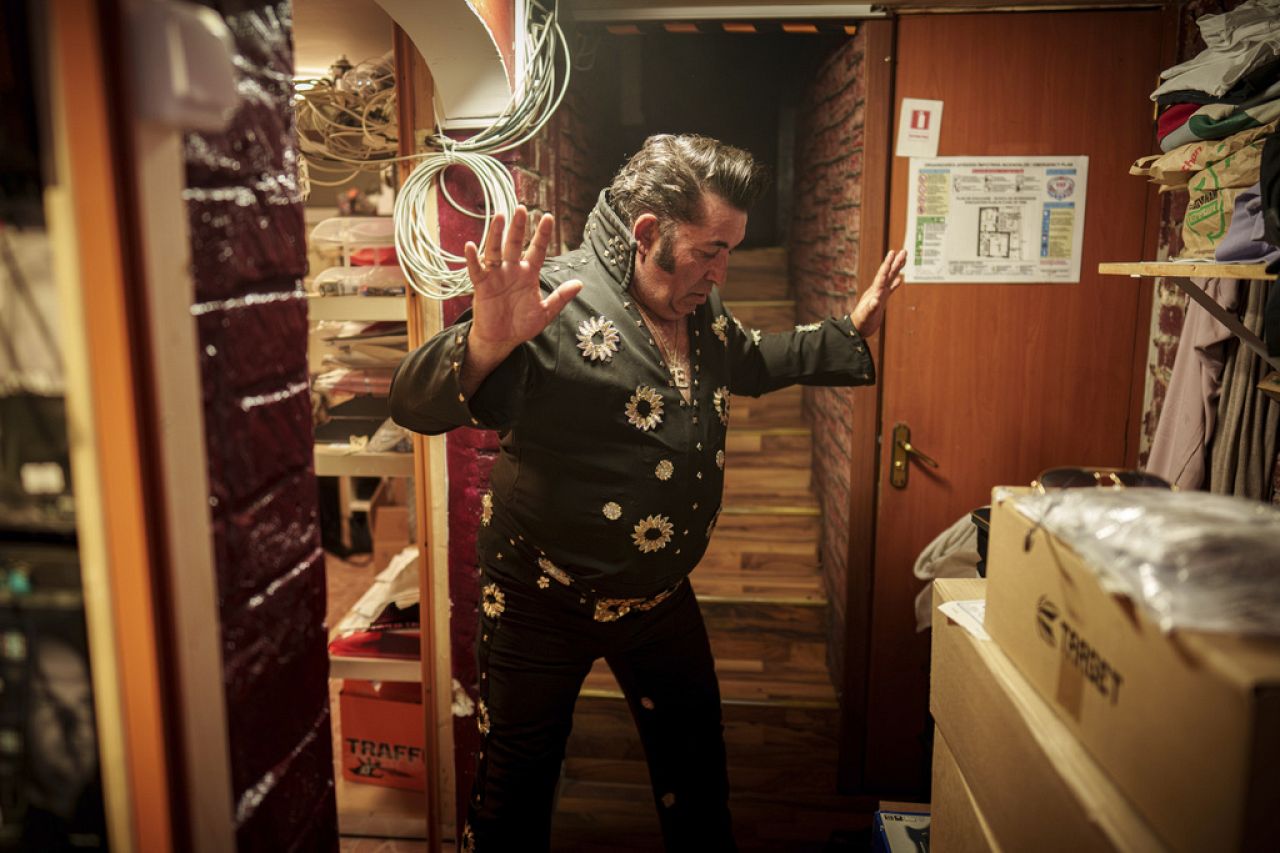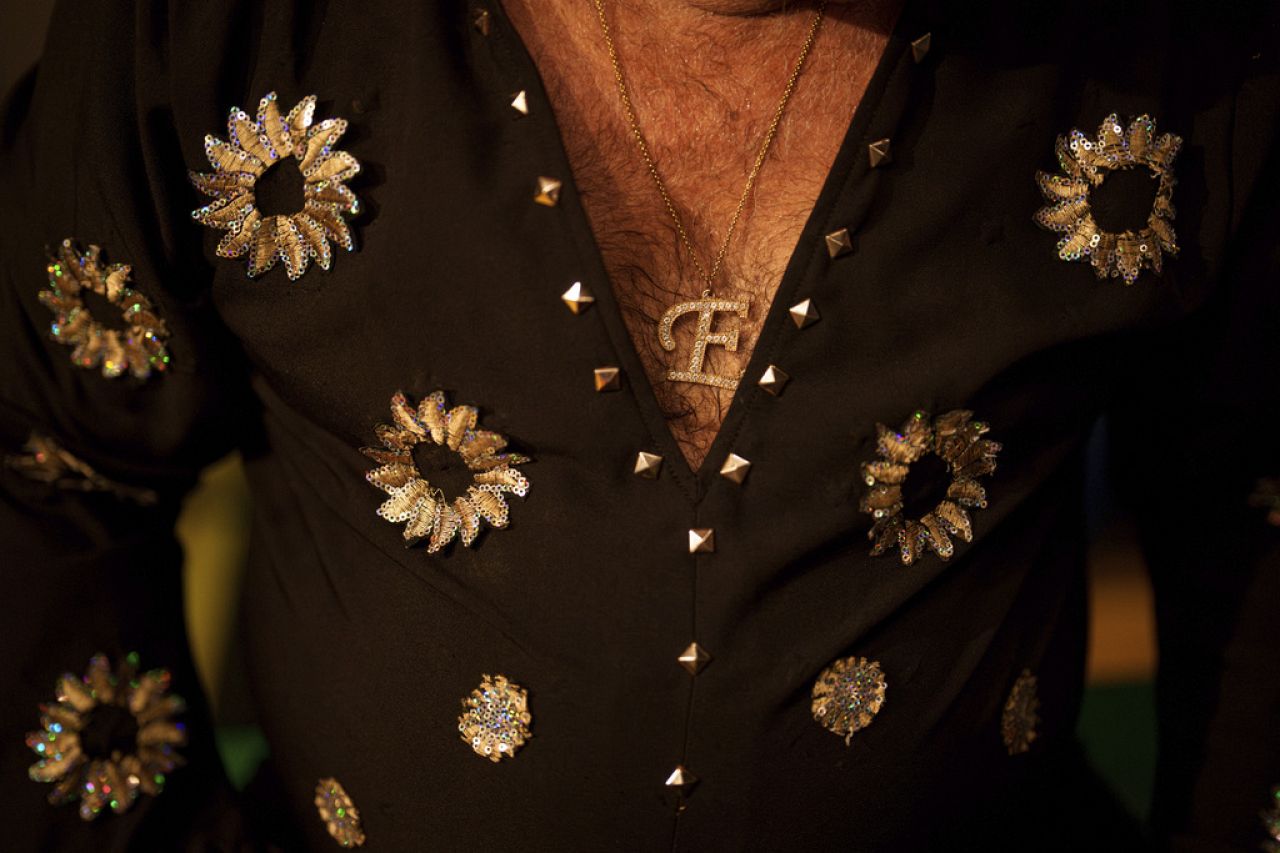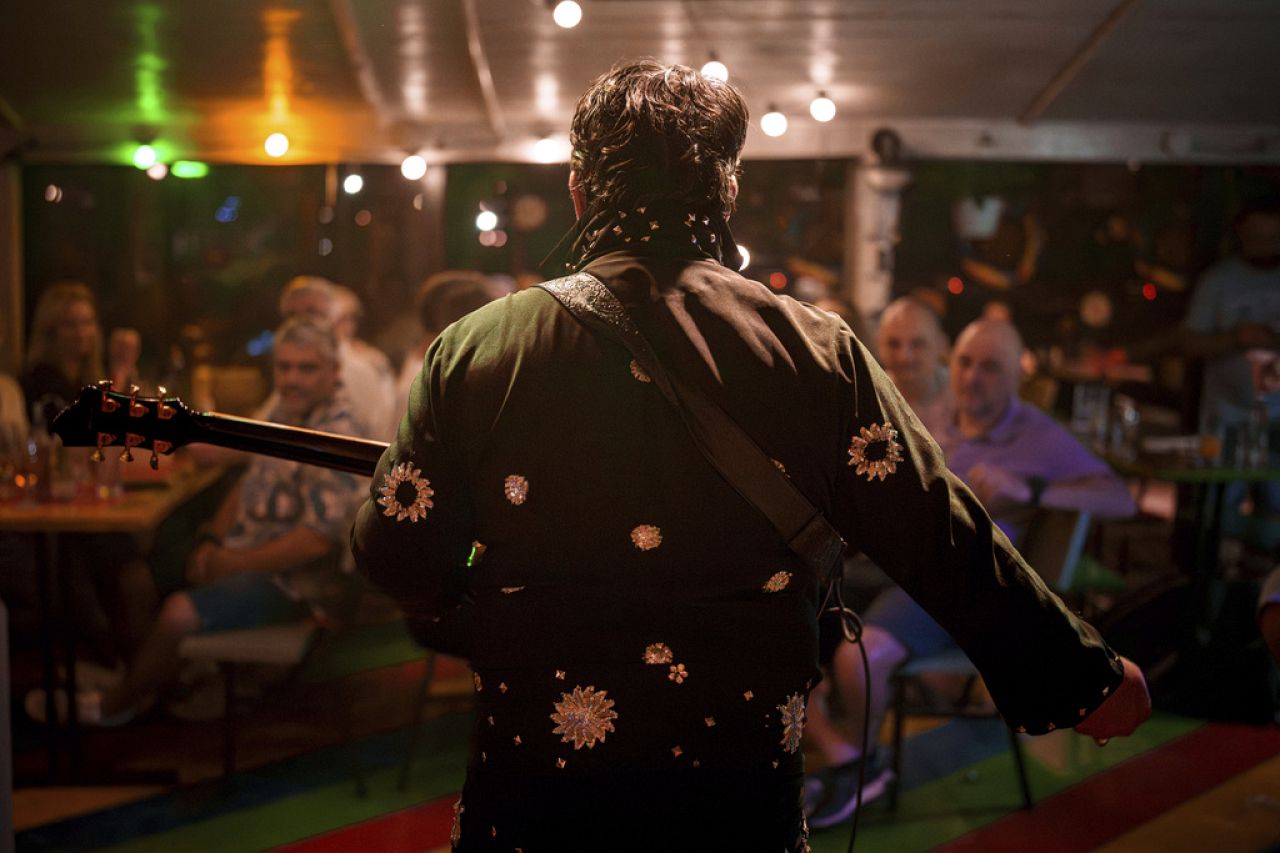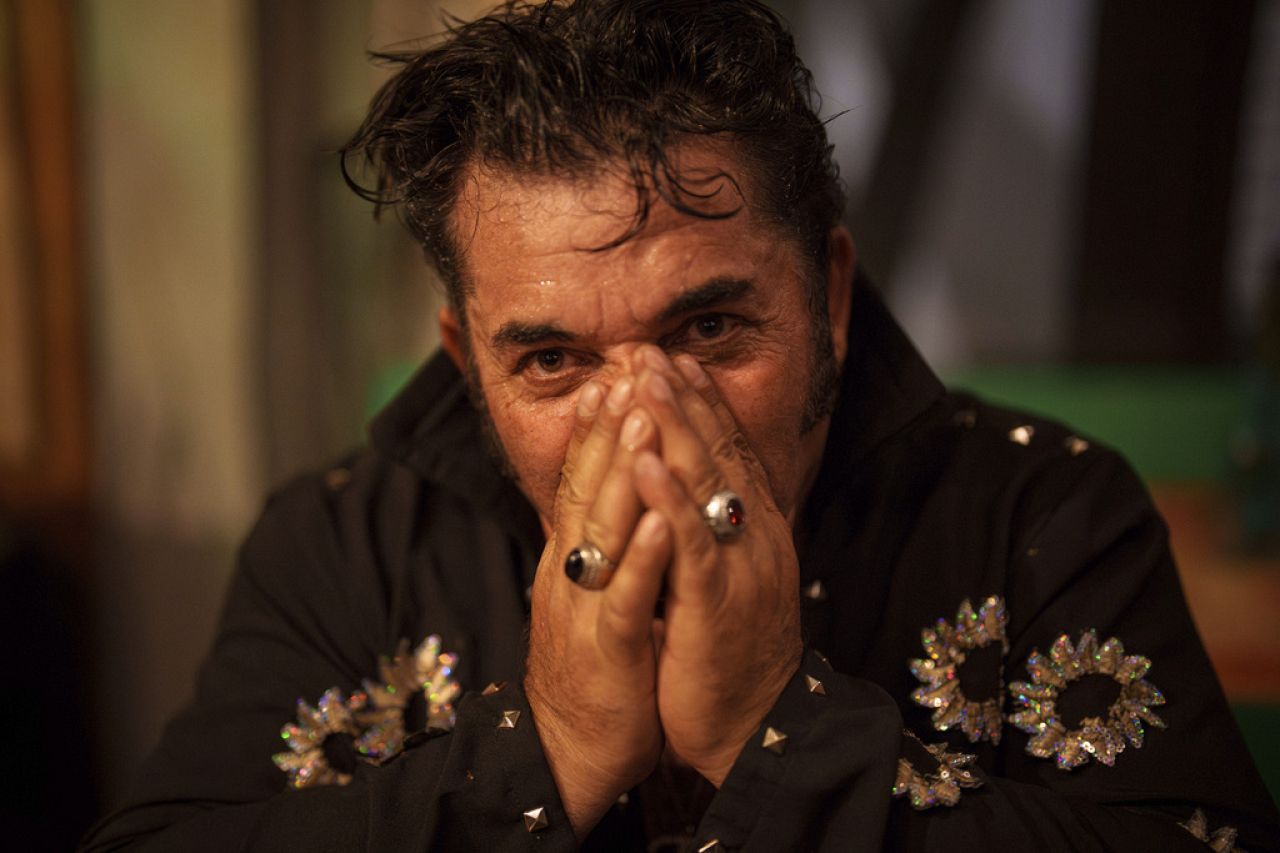'Rock ’n’ Rom': Romanian teacher channels Elvis to fight anti-Roma prejudice
In Romania, Tudor Lakatos blends rock 'n' roll and activism to challenge stereotypes and inspire Roma children – one hip-swivel and Elvis classic at a time.
Tudor Lakatos is fighting discrimination against the Roma people, one Elvis Presley song at a time – and doing it in rhinestones, a quiff, and oversized sunglasses.
Strutting across restaurant stages from Bucharest to remote villages, the 58-year-old schoolteacher doesn't call himself an Elvis impersonator. No, Lakatos says he channels the King – using rock 'n' roll’s universal appeal to bridge cultural divides and offer Roma children a role model that breaks the mould.
“I never wanted to get on stage, I didn’t think about it,” he said after a recent performance in the Romanian capital. “I only wanted one thing – to make friends with Romanians, to stop being called a Gypsy.”
The word is still casually – and often cruelly – thrown around in Romania, where the Roma community makes up about 7% of the population. Discrimination remains widespread. According to a recent EU survey, around one in five Roma in Romania say they’ve experienced it within the past year.
Lakatos’ quiet rebellion began in the 1980s, back when he was an art student living under the harsh communist regime of Nicolae Ceausescu. Rock music, especially the kind imported from America, was more than just entertainment – it was an act of cultural defiance. And Elvis was king.
“I found I could connect with Romanian students by singing Elvis songs,” Lakatos, who goes by the stage name Elvis Rromano, said. It wasn’t just about music – it was about being seen, heard, and accepted.
Four decades on, he’s still making noise. By day, he teaches in a Roma-majority village in northwestern Romania. By night, he’s on the road with his “Rock ’n’ Rom” show – an energetic mix of Elvis tunes performed in Romani, Romanian, and English.
It’s a hit with audiences and students alike, even if some lyrics need a little tweaking. Take 'Blue Suede Shoes', for example. Lakatos points out the line doesn’t quite land with children from poor families.
“In my version, the lyric becomes simply ‘don’t step on my bare feet,’” he said.
On a balmy summer night in Bucharest, that kind of down-to-earth charm was on full display at Terasa Florilor, a no-frills neighbourhood restaurant where Lakatos performed against a backdrop of vividly painted wooden beams. Some people came for the music and danced along, while others were drawn by the restaurant’s Moldavian meatballs.
It’s colourful, chaotic, and deeply personal – and that’s exactly the point. Lakatos wants to show Roma children that their identity doesn’t have to be a source of shame or limitation.
“The adjective Gypsy is used everywhere as a substitute for insult,” he said. “We older people have gotten used to it, we can swallow it, we grew up with it. I have said many times, ‘Call us what you want, dinosaur and brontosaurus, but at least join hands with us to educate the next generation.’”


















